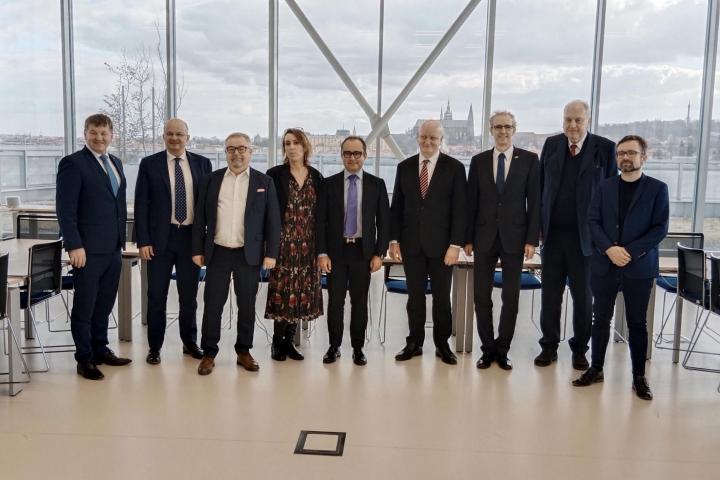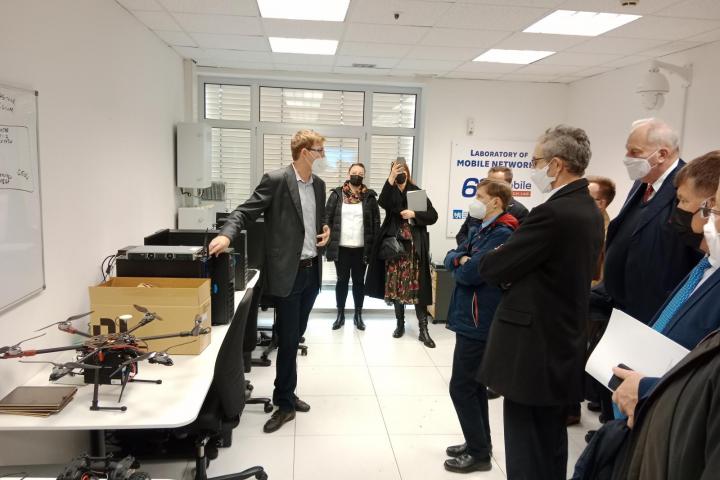
The committee members then headed to the Research Laboratory of the 6g Mobile research lab, established in autumn 2021 at the Faculty of Electrical Engineering, being among the world leaders thanks to its equipment. In the lab, scientists from the Department of Telecommunications work on a number of current problems, such as the use of machine learning for advanced communication directly between terminals (D2D) or the use of drones as flying base stations.
Afterwards, we visited the Nanolab, which is used for research and teaching of nanoelectronic technologies. It combines several unique technologies into a single unit and serves students for hands-on learning. The Nanolab will contribute to meeting the demand of Czech companies for specialised experts to design semiconductors /including microchips!/.
And finally at the Faculty of Information Technology, guests from the EU were able to see what miniature robots and drones can do, operating and acting within the robot community.


